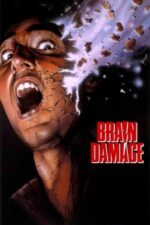The concept of the Faustian pact has captivated audiences for centuries, serving as a cautionary tale about the dangers of ambition and the cost of making deals with unseen forces. In cinema, this theme has been explored through various lenses and genres, from dramatic character studies to psychological thrillers. By examining six films that delve into the Faustian pact, we can see how this timeless narrative continues to resonate in modern storytelling.
Firstly, let's explore "Faustbook," which reimagines Johann Georg Faust within a contemporary context. This film invites viewers to grapple with the complexities of human ambition and knowledge, as its protagonist is tempted by the allure of an enigmatic historical figure. Through his intellectual journey, we witness both the seductive power of mystery and the potential pitfalls that lie in unchecked curiosity.
In "Alias Nick Beal," corruption takes center stage as a dedicated district attorney makes a fateful wish that leads him down a treacherous path. The film poses questions about the cost of making deals with those who operate outside conventional morality, exploring themes such as power and redemption in an increasingly dark world.
Next, we have "Satan's Rhapsody," a tale of eternal youth that delves into the tension between desire and duty. Here, the Faustian pact is embodied by Mephisto himself, who offers rejuvenation at a high price: prohibiting romantic relationships. As two brothers fall in love with the now youthful protagonist, she must grapple with her newfound beauty and its attendant complications.
"Phantom of the Paradise" offers a gritty take on ambition and redemption within the cutthroat world of the music industry. Winslow Leach's life spirals into tragedy after being duped by an infamous producer, leading him to make a deal with sinister consequences. As he plots his retaliation against those who destroyed his dreams, viewers are reminded that ambition can often come at a terrible cost.
In "Angel Heart," a private investigator uncovers a labyrinthine mystery involving missing persons, voodoo rituals, and the sultry underworld of New Orleans. Along the way, he confronts his own demons while navigating the treacherous terrain of reality and illusion. This thrilling detective story serves as a chilling reminder that sometimes, our desires can lead us down dark paths from which there is no return.
Lastly, "Brain Damage" explores addiction and loss of self through Brian's encounter with a parasitic creature capable of producing mind-bending visions. As the parasite takes control over his life, viewers are drawn into a tense, atmospheric journey through Brian's spiraling descent. With striking visuals and an evocative score, this film serves as a warning about the dangers of unchecked desire and the potential consequences of making deals with unseen forces.
These films demonstrate how the Faustian pact continues to captivate audiences, offering compelling narratives that delve into our deepest fears and desires. By examining these tales through various lenses - from music industry corruption to supernatural horror - we gain a richer understanding of what drives us as humans and the potential perils lurking within our ambitions.
In each film, the Faustian pact serves not only as a plot device but also as a mirror reflecting our own struggles with temptation and its dark allure. Through these stories, we can explore our own limits and contemplate the cost of making deals - both literal and figurative - that may shape our destinies.

























